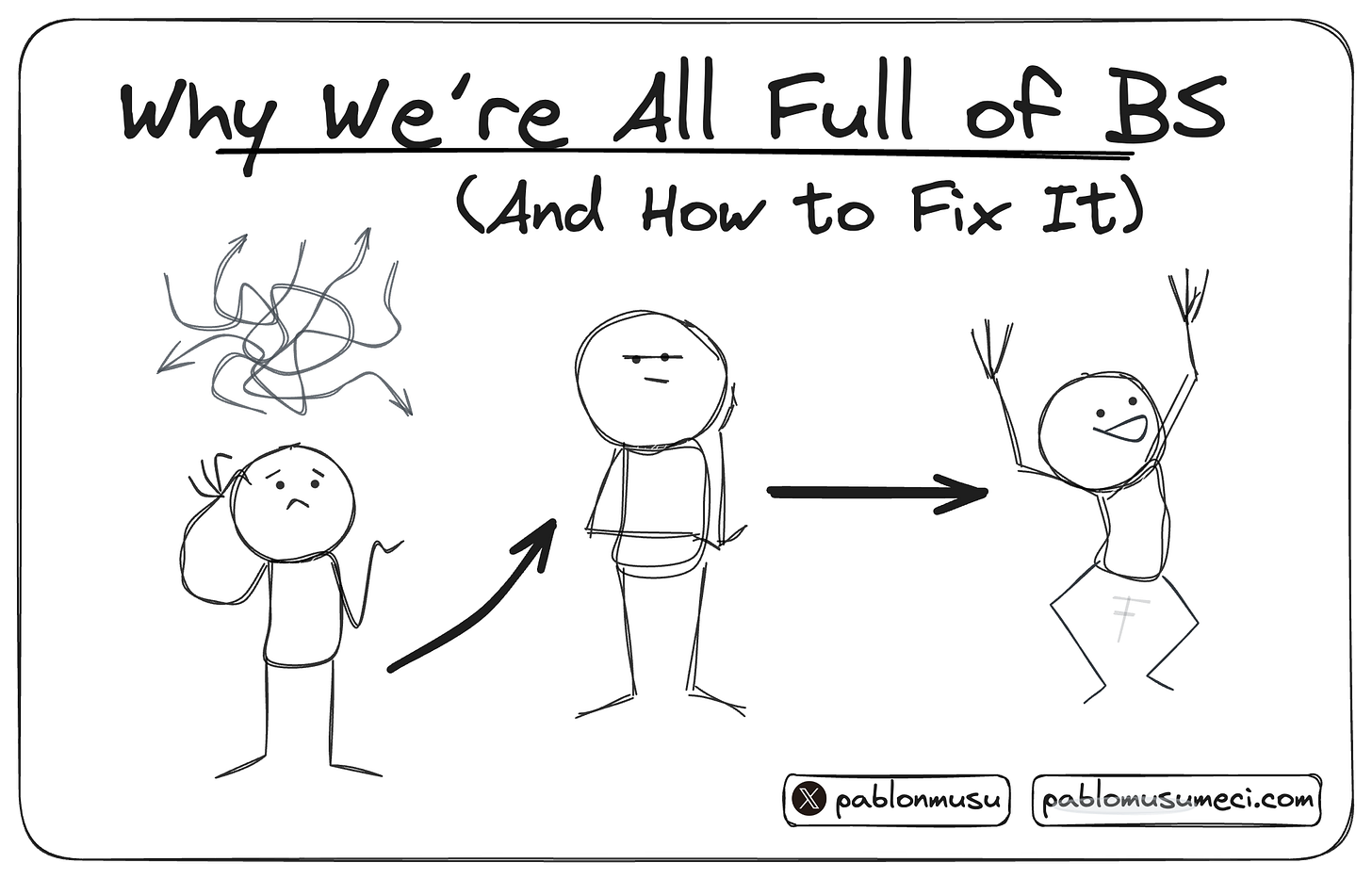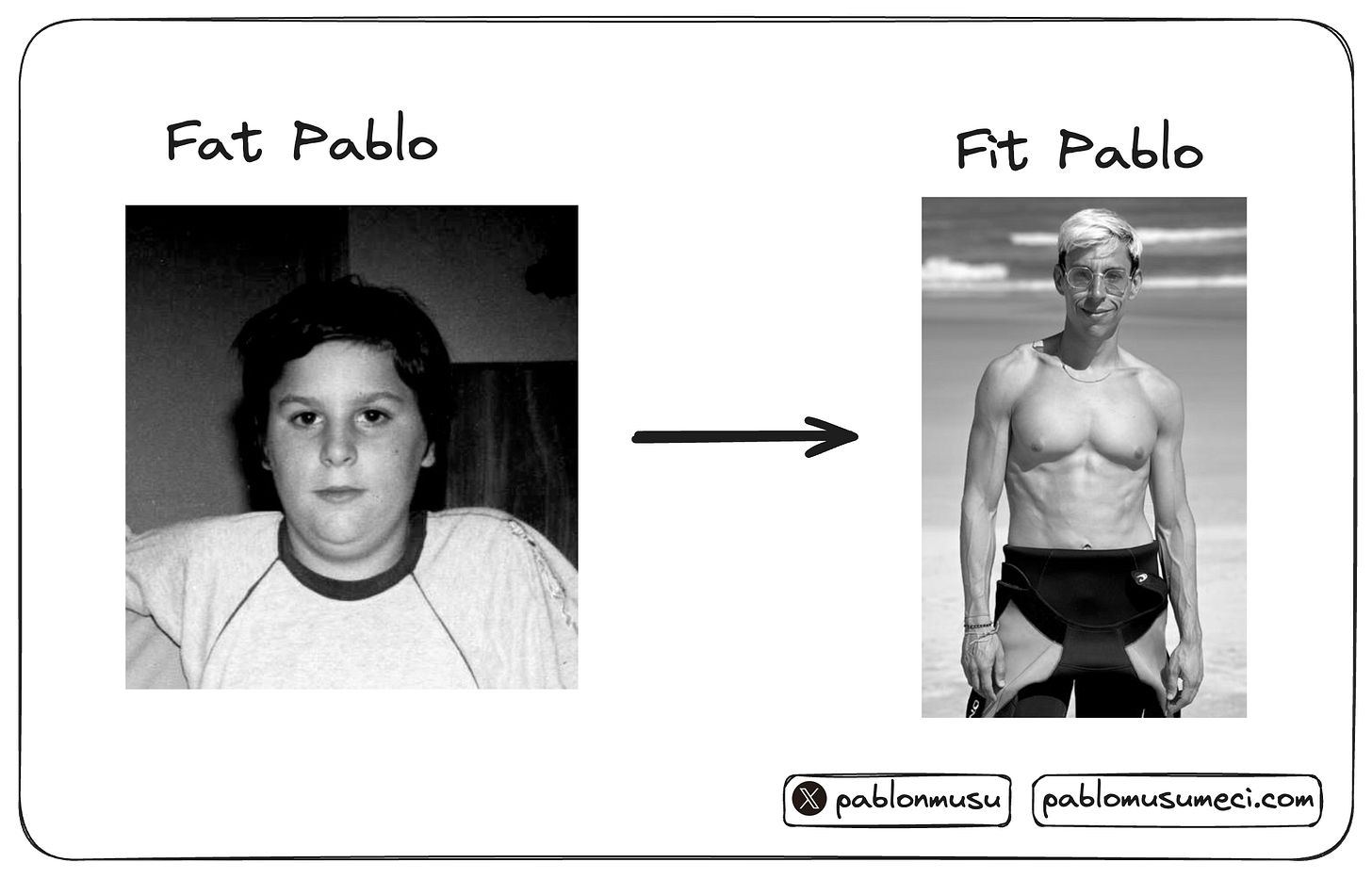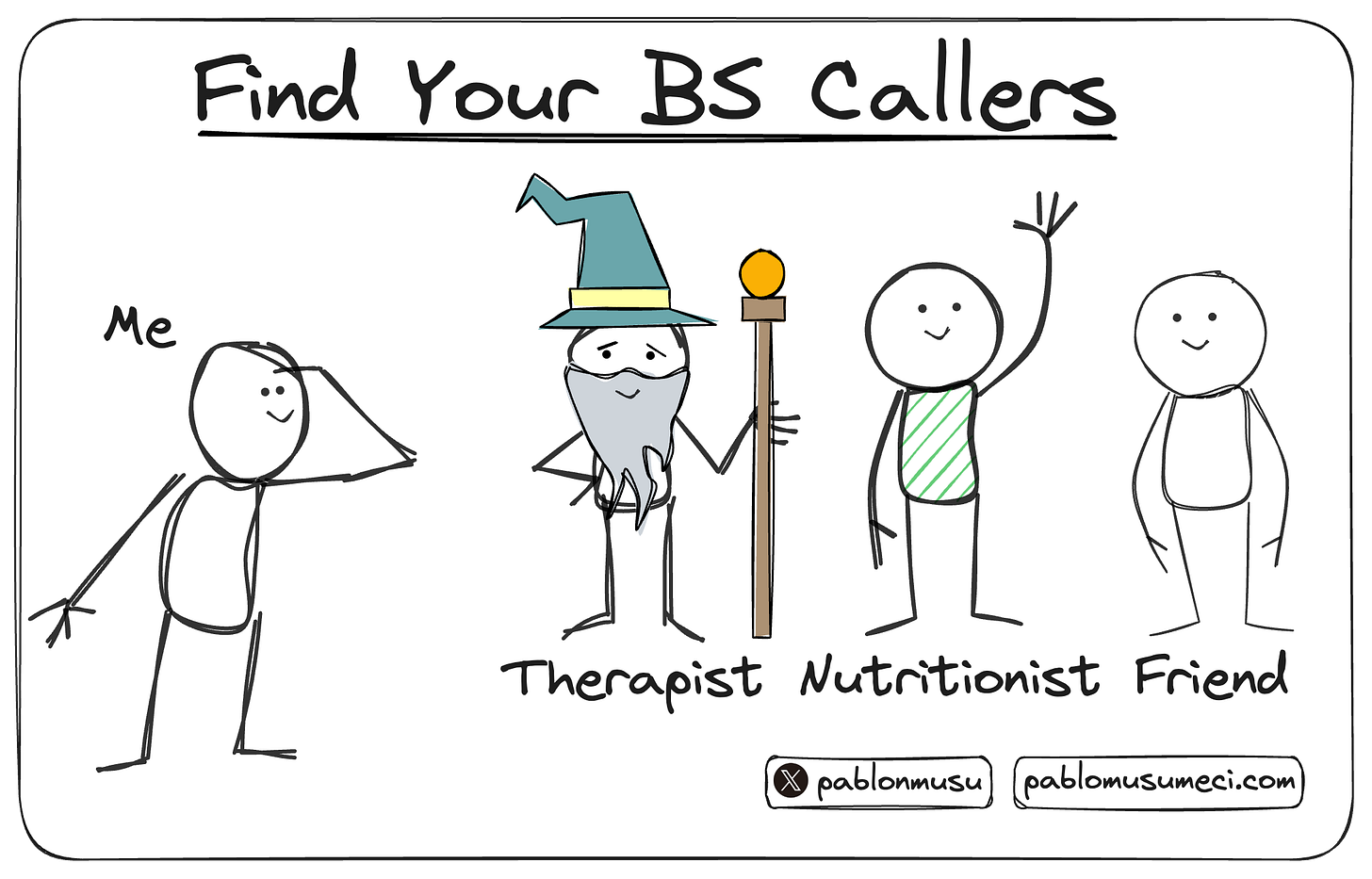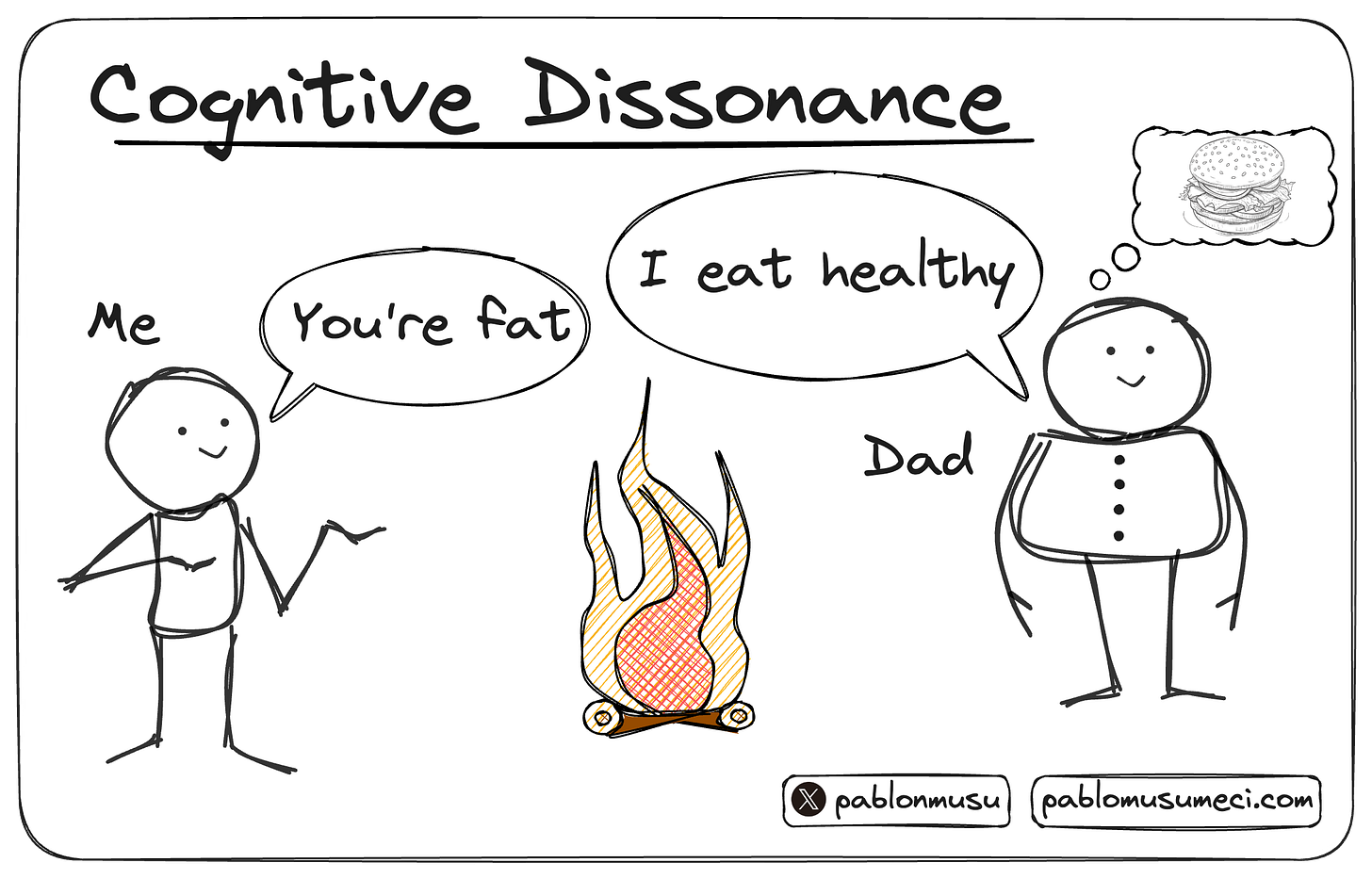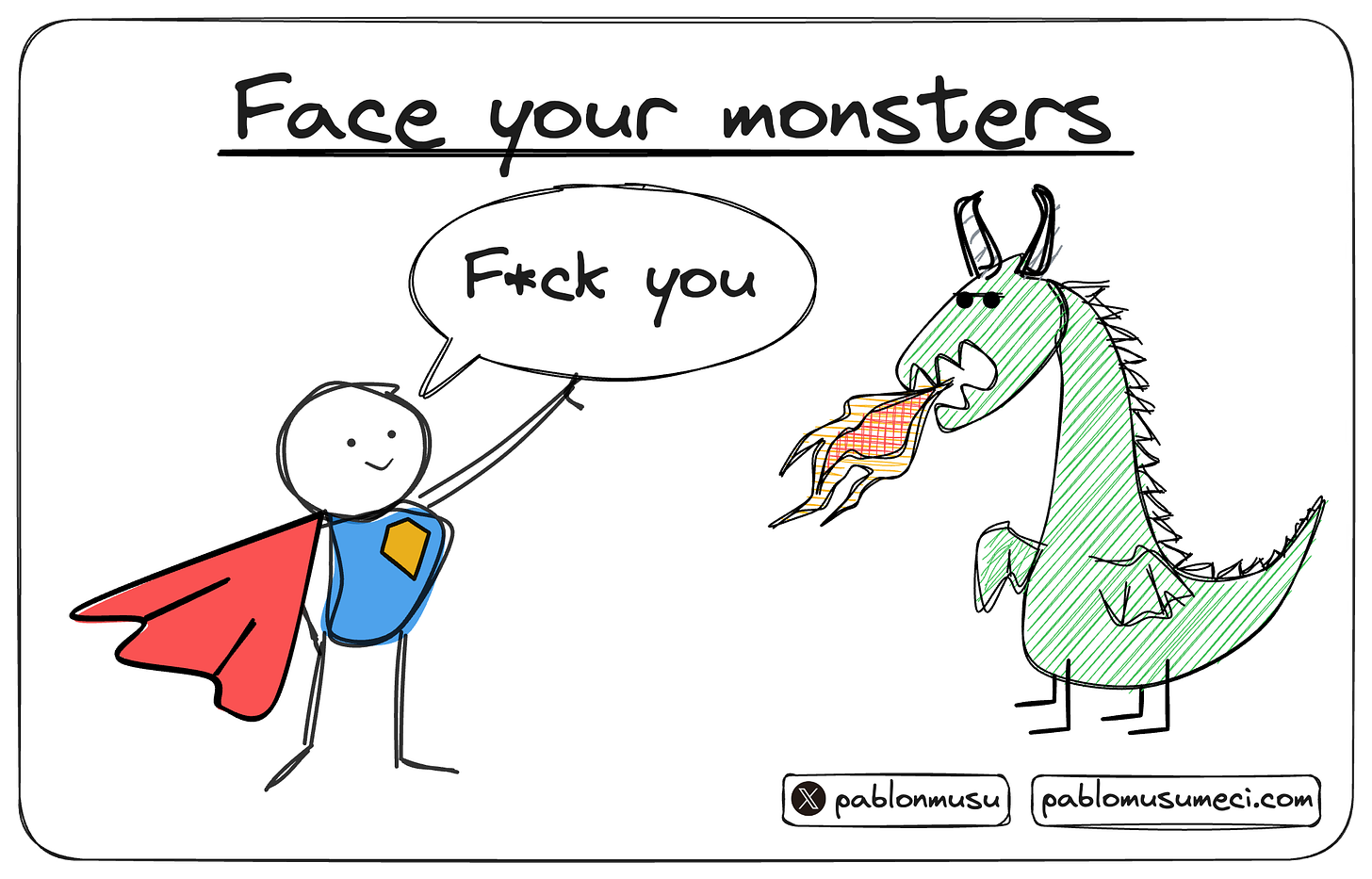Why We’re All Full of BS (And How to Fix It)
Give Self-Deception The Middle Finger And Finally Get What You Want
Ever caught yourself in a lie... to yourself?
I tried asking my friends:
What do I do that you disagree with?
Tell me something you think I wouldn’t like to hear.
What’s something about me that no one dares to say to my face?
Their response? Silence. Uncomfortable silence.
As if this were a trap that could jeopardize our relationship. Reality is, it can happen. Maybe, if they say what they think, I wouldn’t see them the same way anymore.
This is why I love my therapist. I pay him to call me out on my BS.
Have you considered therapy but never started? Then you’re not ready. You need to feel psychologically strong to admit the truth and deal with the consequences. One day, when the moment has arrived, it’ll just happen.
Before we can face our monsters, we need to recognize them—often, they’re hiding in plain sight through our rationalizations.
The Fox and the Sour Grapes
A fox tries to eat grapes from a vine but can't reach them. After several attempts, he walks away, muttering, "They're probably sour anyway."
This is rationalization—a defense mechanism for our self-esteem. We belittle what we can't have to feel better about ourselves, but at a cost: we start believing our lies.
My example? I grew up as a fat kid. To justify indulging in foods I loved, I adopted this belief:
You can either be good-looking or smart. You can’t be both.
Nonsense, right? But this belief wasn’t just mine—my family, cable TV, and the environment around me handed it down. Think about it: the dumb cheerleader and the nerdy outcast. Stereotypes that seep into the subconscious, often without ever being questioned or challenged.
To fat Pablo, being fit was key to being good-looking. So, if you got fitter, you had to get dumber. For every push-up, a neuron died.
As I grew older, I started taking better care of myself and shedding those bogus beliefs. Gradually, and without forcing it, I adopted small habits that built upon each other.
2018: Quit drinking
2020: Started tracking workouts
2021: Began reading books on nutrition and fitness
2023: Consulted a personal trainer
Last week: Hired a nutritionist
The BS isn’t over yet. Maybe it never will be, and that’s the point.
Lying by Omission
My nutritionist, Mariana, asked a simple question: "How many times do you work out per week?"
I answered on auto-pilot: "Four."
Silence. Something clicked. I was lying—to her and, more importantly, to myself.
That silence wasn’t just awkward—it was a mirror, reflecting my BS at me.
My gym is 30 meters from home. I go five or six times a week.
I do 8 km walks with a 10kg vest. This didn’t count as working out for me.
I live on the 6th floor and never use elevators. I didn’t even think it was worth mentioning.
These little omissions add up. Your brain has a reason not to mention them—self-sabotage, shame, unawareness.
Unknown Unknowns
Mariana asked for pictures of my food. The first days, I "forgot" to take them. BS.
I had my favorite cheese in the fridge, the kind I knew I shouldn’t be eating. I grew up in Argentina—discard food that’s still good, and your grandma might stab you in your sleep.
That’s why I didn’t take the picture. I didn’t want to expose my BS.
I told myself I was doing everything I could to lose fat. The last few pounds never went away, and I blamed my genetics.
Now that I’m aware of my BS, progress is not only possible but likely.
Correction: I’m aware of some of my BS—because we don’t know what we don’t know.
The Mental Battle
Losing weight is tough. So many people struggle because:
Processed food is engineered to be addictive
Social gatherings revolve around eating and drinking
In an unhappy life, sugar becomes a stress release valve
What can we do? Flip the script. The battle starts in our mind, not our mouth.
Look at my dad. He’s gaining weight slowly but surely, like a frog being boiled alive.
“Dad, you’re fat,” I said half-joking. “I eat healthy,” he shot back, as if the Raptor 3 engine under his shirt buttons wasn’t about to launch.
Dad, please. I love you, but that’s BS. How can you be taking care of your diet? Results don’t lie.
He believes he does. He ain’t joking.
My dad believes he has a moderately healthy lifestyle. The alternative would be admitting he’s not taking care of himself.
The problem is his definition of "healthy" food and reasonable portions. Everyone has their version of what "healthy" means, and that lack of a common language creates conflict.
For my dad, a restaurant salad might seem healthy, but all I can see is the excess olive oil and sugary dressing.
His response to this cognitive dissonance? Finding scapegoats and building a mental castle.
Assaulting The Fortress
Our mind is a fortress, with walls protecting our beliefs. You can try to break in by force, like calling out someone’s BS directly to their face. But be careful because they’ll fight back.
If you strike hard enough, you might break through. But if you fall short, the walls will rise again, bigger and stronger than before, like a scar that hardens over a wound. The belief fortifies itself.
Want an example? Let’s look at the walls of my dad’s castle:
“I’m old” → I can’t do anything about my weight, so I might as well not try.
“I exercise regularly” → I’m taking care of it, so you don’t need to worry.
“I get lunch at the office” → I have no control over my food, so my weight isn’t my fault.
There’s another way: a siege. Camp outside and wait. Eventually, they might just open the gates themselves when their excuses run low.
I can’t control how my dad behaves, but I can influence him indirectly through my actions. By living a healthy life, I set an example. My dad is the only one with the power and responsibility to change his life.
Fighting Self-Deception
The lies we tell ourselves are the most powerful. How are you lying to yourself? Don’t think you’re not, because you are. We all are. We don’t know how, and that’s the trick.
Take a moment:
Where are you falling short?
Are your results congruent with your actions?
What’s one belief you’ve rationalized to avoid discomfort?
It’s hard to analyze your brain with your brain. Find people with the freedom to call your BS and thank them. We all need outside help to see what is invisible from the inside.
This week challenge yourself: Ask someone close to you to call out your BS and brace yourself because you won't like what you're about to hear.
It hurts like hell but that’s just growth. And it’s worth every bit of the pain.
Have a BS story of your own? Share it in the comments—I’d love to hear how you confronted it.


